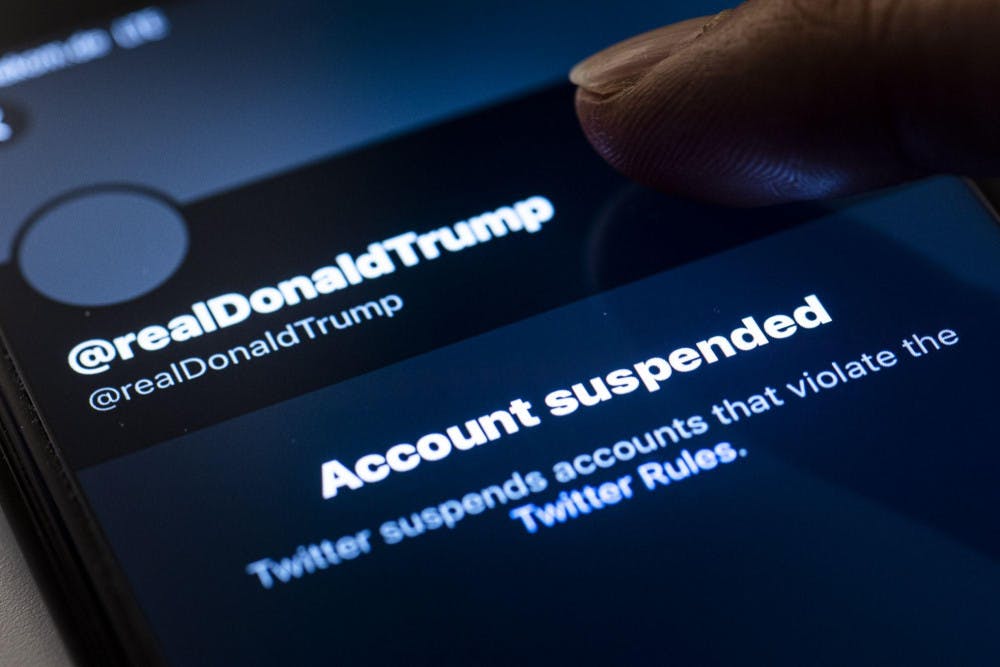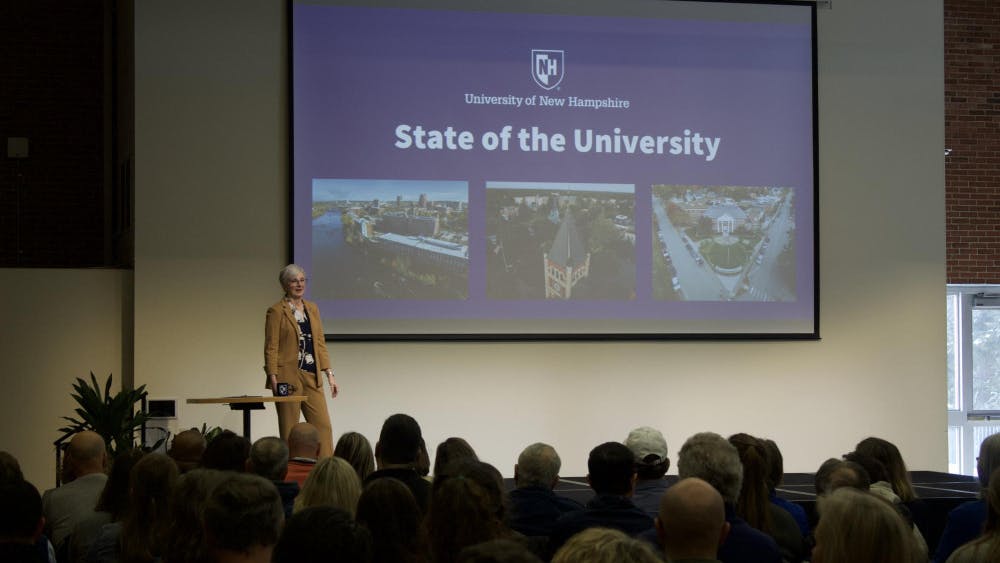On Jan. 6, thousands of demonstrators, many wearing “MAGA” merchandise and waving Trump 2020 flags, broke into the second floor of the U.S. Capitol building right outside the Senate chamber to stop the certification of the 2020 election results. The riot was the product of weeks of speeches and tweets from former President Trump claiming Joe Biden's victory was the result of voter fraud and encouraging his supporters to “stop the steal.”
A couple days later on Jan. 8, with only two weeks left in office, Trump was permanently suspended from Twitter. The former president was also banned from Facebook, Instagram, Reddit, Snapchat and Spotify, among others. However, these restrictions may be lifted now that Trump has left office. Facebook’s oversight board is currently ruling on whether he should be reinstated on the platform.
In addition, Parler—a social media site favored by right-wing groups— was removed from Apple's App Store and Google Play. Amazon also stopped hosting Parler on Amazon Web Services because of policy violations against violent content. It is now hosted by Epik, and is expected to be fully operational by the end of January, according to Parler’s CEO John Matze in an interview with Fox News.
The decision to ban Trump has put the spotlight on how much power big tech companies wield in an age dominated by social media.
Many have called Trump's suspension and the takedown of Parler a violation of free speech under the First Amendment. But the First Amendment protects citizens from the government limiting their free speech and does not apply to private media companies taking down content that violates their terms of service.
However, UNH senior lecturer of political science Tama Andrews explained that increased federal involvement could complicate the issue. In 2016, the government began to put pressure on social media sites to self-regulate after widespread misinformation during the 2016 election. This effort saw the founder of Facebook, Mark Zuckerberg, being summoned for multiple senate hearings.
Andrews predicts there could be a Supreme Court ruling on the issue in the next few years because of the court’s tendency to protect “political speech.”
U.S. tech companies may also have to worry about rising bipartisan support for enacting anti-trust laws. Anti-trust laws were made to protect consumers from a handful of large companies dominating an industry and engaging in predatory business practices. Parler has already sued Amazon for refusing to host its site after the capitol riot and “argued that Amazon violated antitrust law by conspiring with Twitter, a major Amazon customer, to boot Parler just as it was gaining broader appeal.” A federal judge has since ruled in favor of Amazon.
Meanwhile, the Facebook company, which hosts over 4 billion users across its platforms (Facebook, WhatsApp, Facebook Messenger, and Instagram), has been a focus of anti-trust concerns.
“We’re going to see [tech companies] do more things that seem like they're taking responsibility [and self-regulating] because they are afraid of anti-trust action,” explained Michael Soha, UNH senior lecturer of communications. This is because companies don’t want to risk government regulation by drawing negative attention to themselves like back in 2016.
Both Andrews and Soha agree that social media companies do have a responsibility to regulate content on their platforms, similar to how the TV and movie industry have editorial processes to limit inappropriate content or how other industries have consumer product safety standards.
Increased regulation on major platforms can reduce the spread of misinformation and mainstream exposure to extreme rhetoric. It also sends a message that hateful speech is not tolerated.
However, Soha warned that these measures are “not necessarily going to stop the radicalization” as people will turn to smaller platforms and conspiracies like Parler, QAnon or 8kun. He worries more moderate conservatives will become radicalized on these sites.
Nevertheless, Trump’s ban from Twitter also has many wondering why he wasn’t banned earlier.
The former president has not only broken Twitter’s community guidelines before but has been very consistent in spreading false claims. In 2016, despite securing the presidency, the Trump administration alleged there was widespread voter fraud to explain why Hillary Clinton had won the popular vote. The former president even set up the Voter Fraud Commission to investigate these allegations, but the commission disbanded a year later when no evidence of widespread voter fraud was found. However, a Politico poll found that 1 in 4 voters still believed the claims were true. The sowing of doubt in America’s democratic elections primed the way for Trump’s assertions of fraud in the 2020 election that would lead to the capitol riot.
“If you take that language and the things he’s been saying for years very seriously, which his supporters do take seriously, then people are going to be willing to risk their lives,'' explained Soha.
Soha also believes the rise of right-wing violence in recent years has contributed to the siege of the U.S. Capitol. He highlighted the 2017 white supremacist rally in Charlottesville, the 2018 synagogue shooting in Pittsburgh and the 2020 plot to kidnap Michigan’s governor.
“There's this very clear trend that predates the Trump era, but has been really fueled in the Trump era,” he said. “The clear pattern that I think is important to focus on with [former] President Trump is his real reluctance to sanction extreme rhetoric and behavior, and it's something that I think we’ve gotten used to. The [former] president, himself, uses really extreme language we really haven’t seen from a president.”
While private citizens who used extreme rhetoric were more likely to be banned, Trump's status as president meant his statements were the subject of public record. This made him virtually immune to de-platforming. Soha explained that most political media experts expected Trump to be banned when he was a private citizen again.
This then raises the question: If it’s not social media’s job to curtail the president, then whose is it?
Soha thinks that social media should have done more to regulate the president by flagging tweets for misinformation, as was done on many platforms during the 2020 election, but he believes “the failure was a political failure and a failure of journalistic media.”
Journalistic conventions state that everything the president says is news, but when the president has unfiltered access to social media that is no longer the case. The focus should then be on factual reporting and not only stories that will boost ratings. It’s an industry change that will take time.
Trump received little censure from the Republican party for his extreme rhetoric with the notable exceptions of the late Senator John McCain (R-AZ) and Senator Mitt Romney (R-UT). Meanwhile, mainstream media’s continual coverage of Trump amounted to $2 billion in free advertising during his initial 2016 campaign. Soha also noted that Fox News, which has a mainstream outreach unlike Parler, also enables Trump’s claims of voter fraud.
In the end, Trump’s presidency may be over, but the consequences of his actions linger.
Photo courtesy of Yahoo Finance












